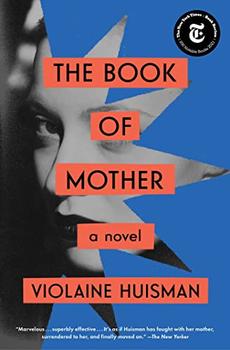Summary | Excerpt | Reviews | Beyond the Book | Readalikes | Genres & Themes | Author Bio

A Novel
by Violaine Huisman
My sister and I had a formula for this love, an expression that functioned like a spell: Darling Maman, I love you like crazy for my whole life and for all eternity. That sentence, if we managed to answer one of her tirades with it, had the power to dissolve her anger and transform her mood. Suddenly she'd calm down, be reassured, knowing that we loved her enough to respond to her attacks with an outpouring of affection. The antidote to her rage wasn't sobriety—it was veneration. We loved her more than anything, and that proof of adoration was sufficient to pacify her and soften her tone. Yes, we loved her and she loved us. The storm would pass with a gentle caress on the back, a kiss on the neck, a shower of kisses, more and more kisses.
Finally, inevitably, we landed at Papa's house. This was after a brief stopover at Grandma and Grandpa's—Maman's mother and stepfather—who couldn't very well drive us every morning from the suburb of Montreuil to our school at the far end of the 15th arrondissement, because Grandma and Grandpa worked! And they were not taxi drivers! They explained to Papa that if he wished to send his chauffeur for us—Papa had a company car at his disposal—then he should go right ahead. That the question of who should house us was a source of conflict was not lost on me. During our stay at Papa's place, I locked myself in the bathroom and wept. How can you be such a crybaby, Maman had scolded me throughout my childhood, when she found me sniveling. Stop crying, for fuck's sake! What, you don't know why you're crying? Want me to smack you, so you'll have a real reason to cry? Of course, Maman was a hypocrite. She herself would cry at the drop of a hat, not all the time, of course, but when the season of tears arrived, it was a veritable monsoon. It's from Maman that I've inherited the annoying habit of leaving a trail of tissues behind me wherever I go, and when she was in one of her weepy phases, her tissues would leave damp marks on the furniture, the couches, the beds, and the pockets of her jeans, the disgusting jeans that she no longer bothered to wash and that she never changed out of, because she no longer had the strength to decide what to wear.
With my mother gone, I lost all sense of time, the minutes and hours seemed too long in themselves to imagine them adding up to days, weeks, or months. Someone explained to us that Maman was ill—so there was something worse than manic-depressive after all, there was ill, your mother is ill. The adjective, in this context, had nothing to do with a temporary indisposition, the type of routine childhood illness we might have experienced in the past. Rather, this ill seemed definitive, final, ringed with darkness. It no longer served to describe a transitory state, with specific symptoms; it drew a line around her whole being. It was probably, I thought, a euphemism—probably they weren't telling me the truth, they were continuing to lie to me to obscure the fact that Maman was gone for good. If I've doubted my memory at times, if I've worried, with the distance of years, about exaggerating the despair I felt then, I have proof of my desperation in the form of a poem that I wrote to my mother when I was ten, and whose first lines read: Maman, maman /You who love me so / Why, without telling me, would you go?
It was during that very autumn of my mother's disappearance that I discovered Apollinaire:
How much I love o season your clamor
The apples falling to earth
The wind and forest weeping
Their tears in autumn leaf by leaf
The leaves
Trampled
A train
Passing
Life
Disposed of
The transience of being, the sense of slipping from existence, the meter that captures that fleetingness, embodies, in verse, life's inexorable passing; that poem, in my memory, merges with a walk in the woods near my grandmother's country house, when a friend of Maman's—the first one to dare—tried to explain to us what had happened to her. It was November, the light was pale, at our feet were strips of gold the chestnuts had set down along our path. In the intermingling of poetry, conversation, and branches, a timid autumn sun broke through the canopy, tearing a hole in my heart.
Excerpted from The Book of Mother by Violaine Huisman. Copyright © 2021 by Violaine Huisman. Reprinted with permission of Scribner, a Division of Simon & Schuster, Inc.
Your guide toexceptional books
BookBrowse seeks out and recommends the best in contemporary fiction and nonfiction—books that not only engage and entertain but also deepen our understanding of ourselves and the world around us.